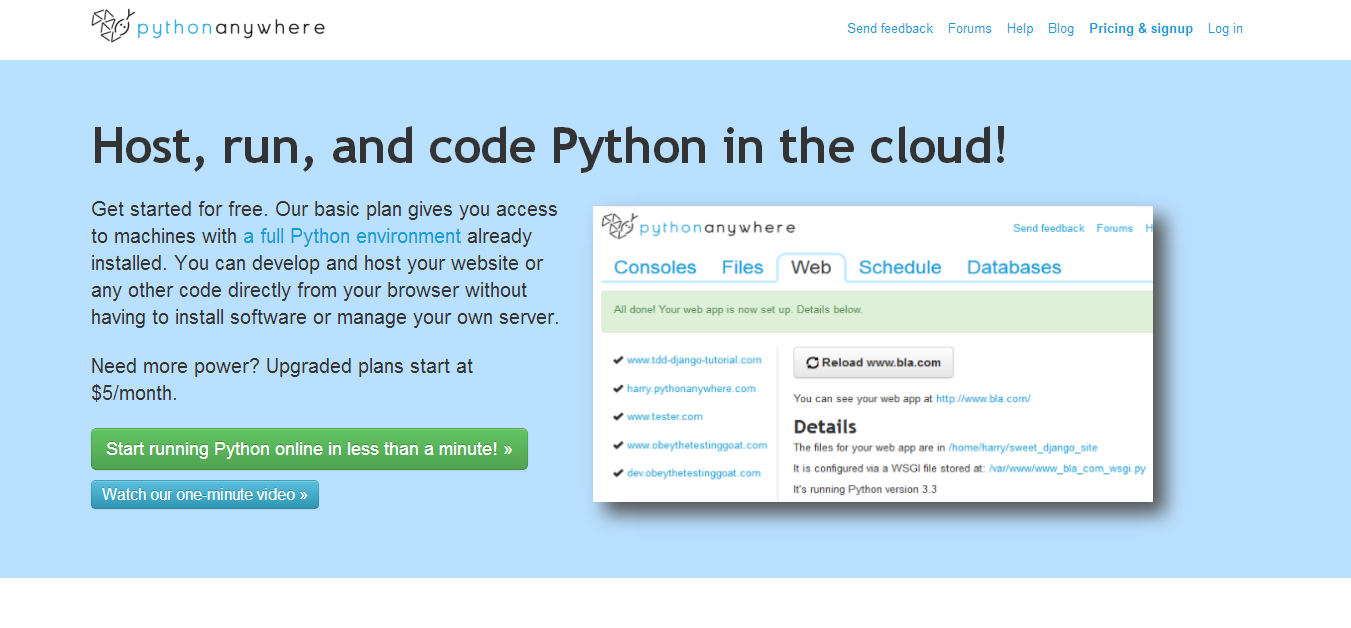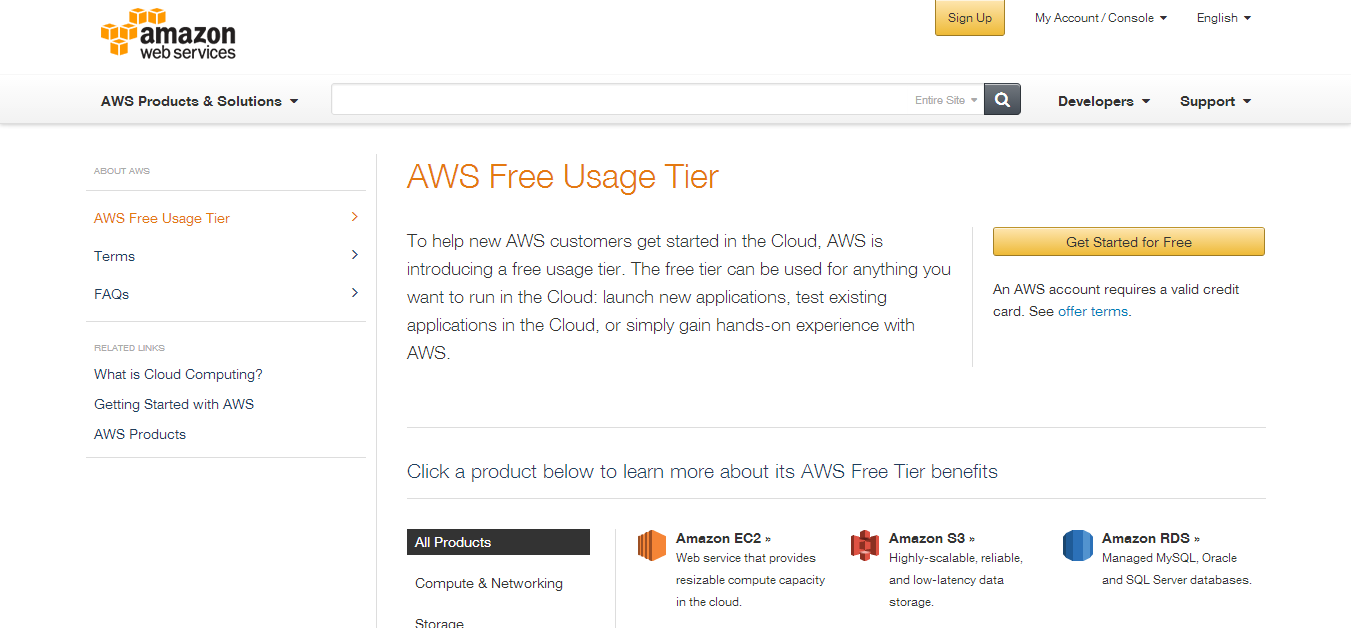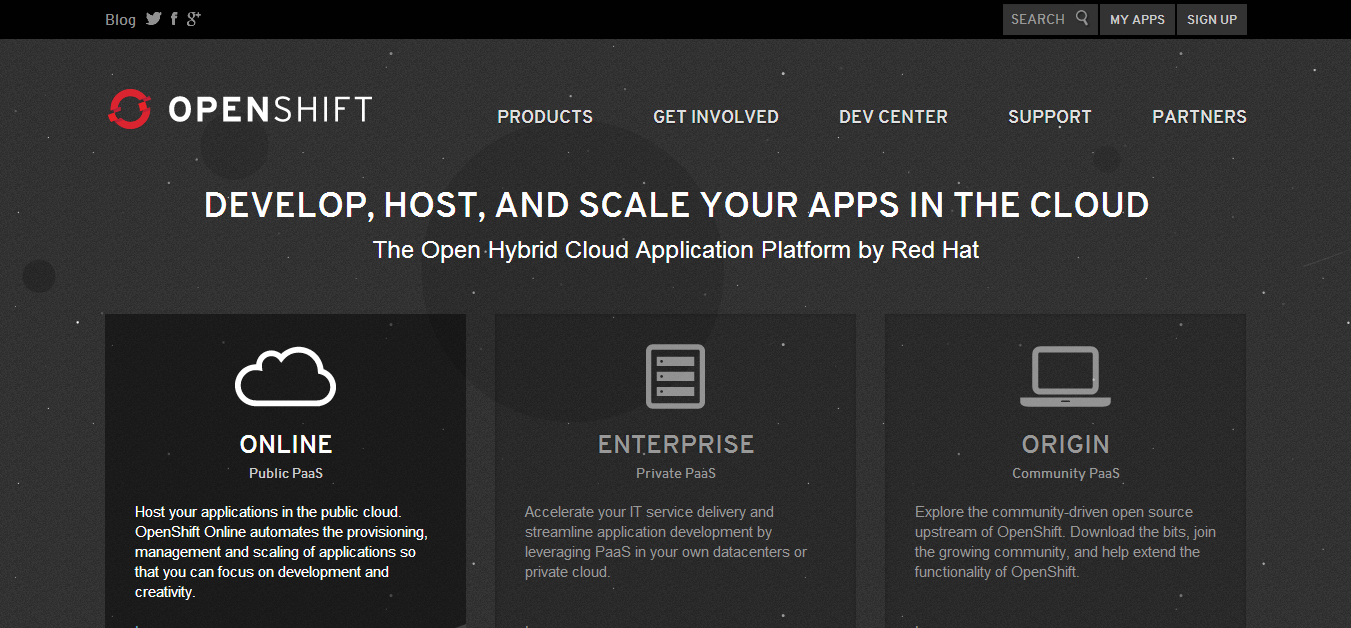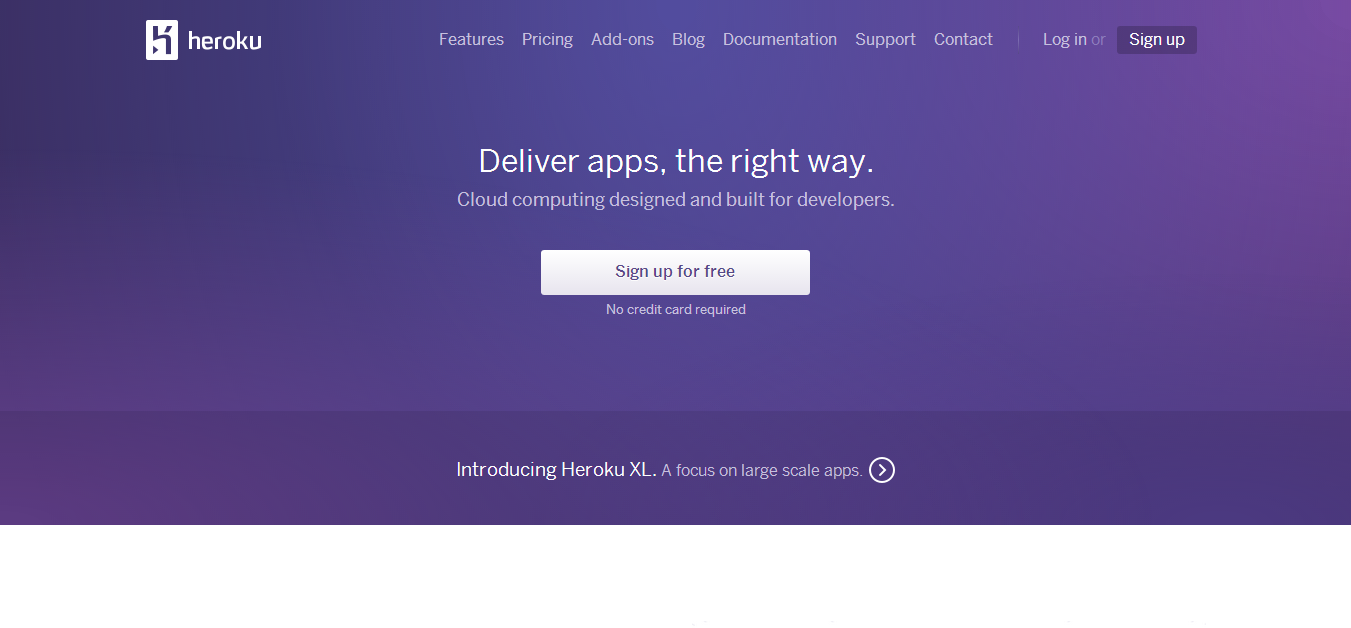I am one of those people who love to work on a remote machine, rather than my own. It’s not even the fact that there might be limitations, or it seems more difficult – it’s just the way I’m used to developing and doing testing. I’m sure there are a lot of other people who prefer to do it the same way.
Trying to find free web hosting is hardly a problem, as there are plenty of options available for those who want to try remote environments for the first time. It becomes difficult when we need a server that can enable us to run applications like Django, and host apps created through the framework.
Read More: Why Getting Proficient in Django Is the Best Decision You Can Take Right Now?
I’m a huge fan of Heroku – which is also going to be included in the list – and the service they provide at no additional cost. You can host little scripts, and try out new things, deploy things and see how they’d perform live, even do a small-scale stress test to see if everything is functioning well. If you are novice towards learning Django, you can try this online tutorial ‘Learn Django and Python Development By Building Projects‘, where you’ll be made familiar with the fundamentals of Django and build blogs, message boards, surveys and much more! And the tutorial is completely FREE!
I hope you’ll be able to find a free Django hosting platform that will suit your needs. They’re obviously not limited to Django only, and I’m only using the terminology so I can have the post rank for that keyword. That’s as transparent as it can get.
1. PythonAnywhere

This is a cloud-based platform – like most are – that allows you to have a server instance for all your Python development needs, and you can set up a fully functional web server within a couple of clicks. It currently supports one-click install for the following Python applications:
The list is too big to list here!
Head over to the ‘Batteries‘ page and see which libraries, frameworks, and other Python tools are available for easy importation and installation.
The free plan offers enough specifications for you to do some basic testing, and even host a portfolio site if you’d like. You can upgrade to a ‘Hacker Plan’ at $5 per month, and that will allow you to have up to 10k visits per day, depending on the source and type of traffic.
2. Amazon AWS – Free

The Amazon AWS free plan is pretty much a way of learning more about the services that AWS & EC2 provide to the world, and perhaps get you hooked on the way their instances and system works in order to become full-time customers. You’ll be able to do just about enough to get your feet wet with testing applications and deploying them. It’s, of course, good to learn more about such platforms, as you never know when it might come in handy, especially when working in the field of development.
Serdar, an author on InfoWorld has recently published a quick review of the Amazon AWS Free plan and I’d love to have you check it out, as it goes more in-depth about the service and what you can expect.
3. OpenShift

This is a project maintained by the original Red Hat board, and provides a free – and paid – cloud service to those who need it. OpenShift is very popular in the community, and fully supports hundreds of applications and types of programming languages for you to launch from their ‘gears’.
Learn more about the pricing here.
The official OpenShift blog is full of tutorials, guides and other juicy information that will help you get going quickly. Most importantly, yes, it does support free Django hosting!
4. Heroku

This platform is the perfect example of successful growth, over the last couple of years, Heroku has become the place to go to when someone is looking to launch a new startup or a business. It provides incredibly cloud facilities and the server performance is really great, especially when it’s free!
It has now grown and offers a ton of enterprise capabilities and plans for large companies that need infrastructure that can scale, we’re after Django hosting! You can head over to the Heroku’s own ‘Getting Started with Django‘ guide and learn how to set up a fully functional Django installation on your Heroku node.
Platforms for Free Django Hosting
I’m not sure if I was able to catch and list all of the good ones on this list. I’ll appreciate it if you help me out by sending in a tip to more platforms and hosting providers like this, as I’m always looking for something like that myself. I’ve played around with only Heroku, as far as this list goes – but I’ve heard good recommendations for the rest, and I’m sure you’ve too!
Read More: Cheat Sheet to Docker Commands for Software Developers


Hi, have you checked nitrous.io?
Yes, they do. I’ve one box setup there for testing node.js :)
i tested nitrous.io and it’s not a platform for hosting, instead is a PaaS, you can use for develop, not for host your app
Loving all these django posts :)
Haha I prefer django so no problem with me :). Also I heard https://www.digitalocean.com/ is good considering it only costs $5 a month for an SSD in the cloud.
What about Google AppEngine? https://developers.google.com/appengine/docs/python/cloud-sql/django
GAE offers free quotas for they services. The problem is that you need to use the Django-nonrel project to be able to use their Datastore API, otherwise you’ll have to use the Cloud SQL service (which is paid from the beginning). Nevertheless, its good if you’re app wont require so complex database relations and if you’re worried about quick (and automatic) scaling.
A really good France-based host is http://alwaysdata.com/ – They offer a free plan and have super tech support. I’ve been using them for ~6 years.
just checked out, this one still available and seems good enough for tiny project…gonna try this one
How about deploying a blog. Is it good to go?
Thanks for including Gondor! As a treat for your readers, we’d love to give anyone who mentions that they saw us here a $20 credit when they sign up: just email support@gondor.io
Great summary of Django hosting! Thanks for this post :)
I wrote a blog post awhile ago which discusses a bunch of PaaS providers which support Django.
http://appsembler.com/blog/paas-bakeoff-comparing-stackato-openshift-dotcloud-and-heroku-for-django-hosting-and-deployment/
And this one for Google App Engine deployment
http://appsembler.com/blog/deploy-django-apps-to-google-app-engine-with-django-deployer-in-5-minutes/
Also check out my PaaS Cheatsheet. http://www.paascheatsheet.com which is focused on Django app deployment.
Nate
Thanks for including PythonAnywhere!
I have added your answer here and reference
Let me know if you mind it
https://www.quora.com/Where-can-I-host-my-django-web-app-for-free
It’s all good, thanks for promoting my work! :)
I am totally a newbie for Django and Web App. I am trying to deploy my app to the web quickly. After tried Heroku, I find it is not easy to start. I stuck in the middle of the ‘Getting Started with Python on Heroku’ tutorial and cannot continue. It failed in ‘pip install -r requirements.txt –allow-all-external’. And I couldn’t run ‘heroku run python manage.py syncdb’ either. It frustrated me. I need a database.
Did you tried Google App Engine? How about that?
Nice post, Will gonna use for my upcoming django app.!
Hello,
I had a question, can i deploy globaleaks (https://github.com/globaleaks/GlobaLeaks) on any of theses platforms ? or can you point me to one that i can deploy it on..
Another nice platform is Divio Aldryn Cloud (https://www.divio.com/en/pricing/), which has a free plan (including custom domains, SSL etc.) and provides nice tools for development (e.g. CLI or a user-friendly desktop app, git integration).
You might want to remove gander, their cheapest pricing is 100$ a month now
gonder*
Unfortunately Openshift is no longer free.
Do any of those support using custom domain on free accounts
Good
this is great! you have solved my problem